Domstolarnas verksamhet under corona-pandemin
2 April, 2020
Det europeiska domareförbundets ordförande José Igreja Matos har gjort ett uttalande om den dömande maktens fortsatta funktion under nu rådande förutsättningar. Många länder har infört mer eller mindre kraftfulla begränsningar i människors fria rörlighet. José Igreja Matos skriver att undantagslagar måste kunna prövas av den dömande makten och att krisåtgärder inte kan användas som förevändning för att åsidosätta konstitutionella garantier. Han skriver också att domare har ett särskilt ansvar för att uppfylla sin uppgift även i svåra tider som dessa.

"What's true of all the evils in the world is true of plague as well. It helps men to rise above themselves." ― Albert Camus, The Plague
The terrible time we are living in with the coronavirus pandemic poses arduous challenges for those who work in the judicial system. The worldwide extent of the COVID-19 crisis has confronted us, again in our history, with the eternal fragility of humanity.
The International Association of Judges (IAJ) represents associations of 92 countries from five continents. The global dimension of our organization implies a particular obligation to reiterate the grave duties of judges in relation to this pandemic.
On a structural level, the enforcement of emergency laws approved by national authorities must be carefully supervised by the judiciary. These emergencies responses will confront normal principles of democratic governance, human rights and the rule of law. In all countries that decide to implement restrictions on the constitutional order, the risk of undermining the role of the judiciary will inevitably emerge.
"The price of liberty is eternal vigilance"; the famous phrase attributed to Thomas Jefferson has gained in our lifetime a renewed significance.
Therefore, governments should not be tempted to perceive the present crisis as an opportunity to overlook the essential role of independent courts as guardians of human rights and civil liberties.
It must be also clearly recognized that the quarantine induced by COVID-19 has created damaging repercussions in court activities. Across all countries, the efforts to slow the spread of the COVID-19 have massively impacted the functioning of the justice system. Most of the judicial cases are, or will be, inevitably deferred, if not paralyzed.
The Bangalore Principles of Judicial Conduct determine that "a judge must accept personal restrictions that might be viewed as burdensome by the ordinary citizen and should do so freely and willingly." This is the current case, and it should be a welcomed duty for each judge to be readily available to serve fellow citizens in a spirit of public service. Whatever happens, judges will continue at the service of each citizen whenever an urgent measure must be decided, whenever a ruling must be taken. This is particularly applicable in matters that involve fundamental rights or the protection of the more fragile members of our communities, especially older persons, but also, for instance, the victims of domestic violence now heavily pressured by the confinement of families, and, in general, all those in need.
The poet John Donne once wrote: "No man is an island, entire of itself; every man is a piece of the continent, a part of the main." The International Association of Judges, a completely apolitical organization, was built under the fundamental pillar of solidarity, both among judges and towards our fellow citizens.
This is the right message for these troubled times we live in.
_________
Judge Matos is the First Vice-President of the International Association of Judges, President of the European Association of Judges and a member of the Global Judicial Integrity Network's Advisory Board.
